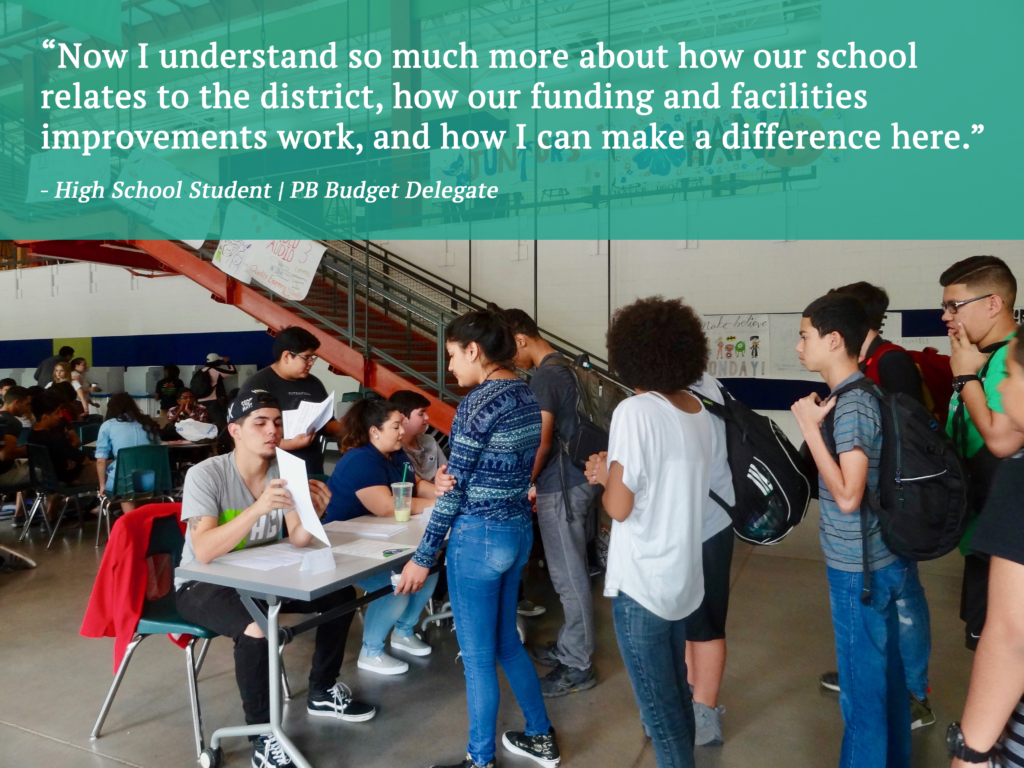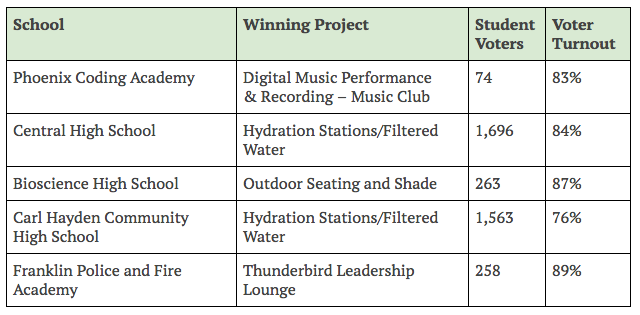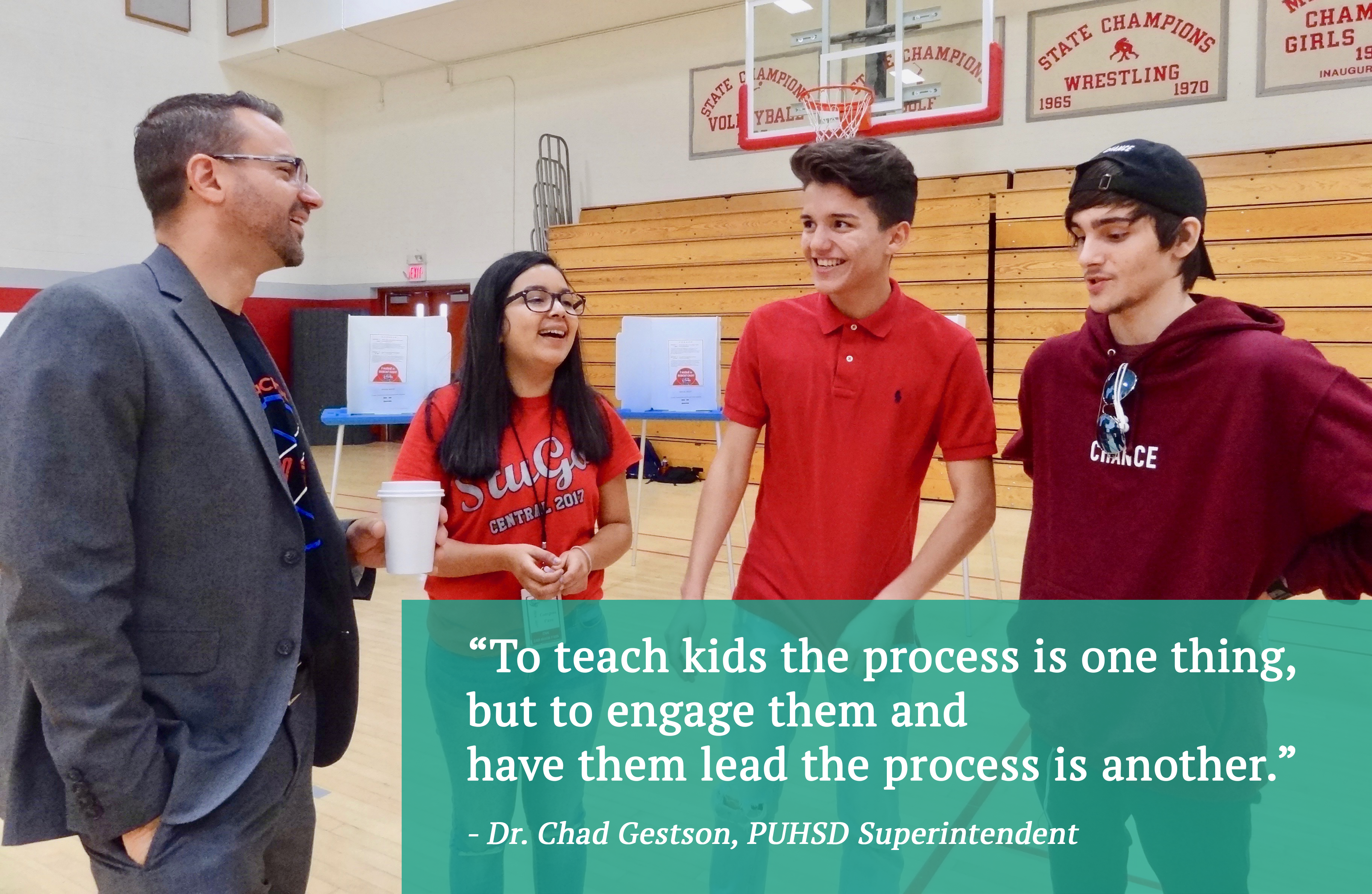The article, More Than a Seat at the Table: A Resource for Authentic and Equitable Youth Engagement (2016), was written by Rebecca Reyes and Malana Rogers-Bursen, and published on Everyday Democracy. This article explores several challenges when it comes to youth engagement and offers solutions to more effectively engage young people. It is important to engage young people in meaningful ways and for them to be a part of the key decision-making processes. Use this article as a way to gauge if your processes are inclusive of young people and how to improve those processes to better engage youth. Below is an excerpt of the article from Everyday Democracy, and can find the full article with all the examples of the specific challenges and solutions here.
From Everyday Democracy…
If you’re working on creating change in your community, it’s important to include all kinds of people in decision-making, including young people. The insight and talents of young people can bring value to any community change effort, yet community groups led by older adults sometimes find it hard to involve younger people, or keep them engaged.
We’ve led workshops on youth engagement to help people explore challenges they may face and think about possible solutions. People of all ages and from many sectors contributed their ideas for successfully engaging young people in their efforts. We’ve compiled a number of challenges that you may have encountered in your work or that may come up in the future, along with ways to address these challenges in your group.
There are many barriers young people can face that prevent them from getting involved. The barrier may be logistical, such as a meeting time or location. Even when we get young people to the table, they might not feel like they have an equal voice or decision making power.
Whenever we bring young people onto a planning team or steering committee, we need to make sure they’re making a meaningful contribution. Think back to how you were involved as a young person. Would you have been satisfied if you were asked to join a sports team, but were never allowed to play? What about if you volunteered with a group, but weren’t given any specific task to do? Or if you didn’t see the impact you were making at your workplace, however small?
Ultimately, the goal is to create intergenerational work with equitable relationships. This means that young people not only have a seat at the table and contribute in a meaningful way, but they are also a key part of decision-making. Engagement is just the first step.
Before you bring young people onto the team, it’s good practice to have a conversation about why it’s important to include young people and how you envision them contributing. Make sure everyone is on board and understands young people’s value.
Another important step is setting ground rules. This can help make sure that people have equal voice in meetings and respect for each individual’s opinion regardless of age.
The challenges and solutions you’ll read about can come into play no matter which age range you’re targeting, but you should define as a group what you mean by “youth” or “young people.” We define “youth” as anyone who is middle school and high school age, typically between the ages of 12-18. We define “young adult” as anyone between the ages of 18-30, and “young people” as anyone under 30. It’s also important to recognize that there are many different experiences people may have, even within these age ranges.
Note that young people aren’t the only ones who might face some of the challenges listed below. When you address these barriers, you’re being inclusive of many groups of people.
This is an in-depth list that is meant to be used as a reference whenever issues arise. Feel free to scroll through the list of scenarios and solutions, or click one of the links below to jump to a specific challenge:
– Understand how young people can contribute
– Making meetings and events appealing to young people
– Young people may not be aware of unspoken norms and practices
– Experience barriers
– The norms and practices are set and communicated by adults
– Young people have limited voice in meetings
– Allowing young people to try something that didn’t work in the past
– One young person is asked to be the voice for their peers
– The same young people are always invited
– Microaggressions get in the way of building bridges between generations and cultural and racial identities
– Decisions made by planning teams don’t reflect the diversity of the community
About Everyday Democracy
Everyday Democracy (formerly called the Study Circles Resource Center) is a project of The Paul J. Aicher Foundation, a private operating foundation dedicated to strengthening deliberative democracy and improving the quality of public life in the United States. Since our founding in 1989, we’ve worked with hundreds of communities across the United States on issues such as: racial equity, poverty reduction and economic development, education reform, early childhood development and building strong neighborhoods. We work with national, regional and state organizations in order to leverage our resources and to expand the reach and impact of civic engagement processes and tools.
Follow on Twitter: @EvDem
Resource Link: www.everyday-democracy.org/tips/authentic-and-equitable-youth-engagement







 which helped him find his voice in civic life and sparked his lifelong interest in helping others find their own. He saw a direct connection between his early experiences as a participant and a facilitator and his later vision for embedding these kinds of opportunities into American political life and culture.
which helped him find his voice in civic life and sparked his lifelong interest in helping others find their own. He saw a direct connection between his early experiences as a participant and a facilitator and his later vision for embedding these kinds of opportunities into American political life and culture.